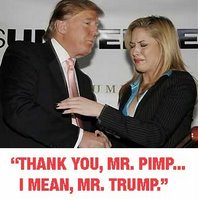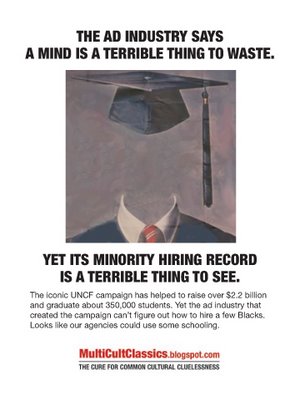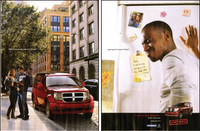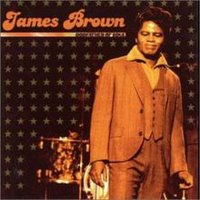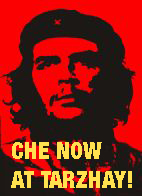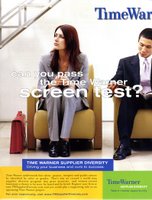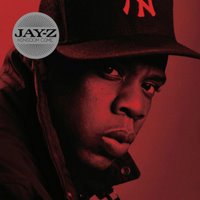
Here are the CliffsNotes for 2006 (to enjoy the unabridged version — including spirited responses, ad critiques, cultural news and more — simply review the past year of MultiCultClassics):
The Sony Playstation Portables graffiti-style ad campaign was banned in cities like Philadelphia, and dissed nationwide. Wal-Mart customers seeking online purchases of Planet Of The Apes and Charlie And The Chocolate Factory were directed to also consider films with Black themes. The Vidal Partnership, Dieste Harmel & Partners and Bromley Communications were listed in Advertising Age’s Agency Of The Year report, with Vidal earning a five-star rating. Burrell Communications was crowned Advertising Age’s Multicultural Agency Of The Year. Marketing y Medios anointed Grupo Gallegos as Advertising Agency of the Year, acknowledging the shop increased its billings 91 percent, won 8 out of 9 new business pitches and nabbed awards including The New York Festival’s Gold, a Silver Pencil at D&AD and a Silver Lion at Cannes. The American Advertising Federation released the AAF Survey on Recruiting and Multicultural Advertising Trends, essentially revealing the industry is clueless about recruiting and multicultural advertising trends. New York City’s Commission on Human Rights, led by Patricia Gatling with NYC Councilman Larry Seabrook, announced intentions to subpoena ad industry honchos over minority hiring practices. Advertising Age’s Multicultural Agency Of The Year Burrell Communications dumped head creative Steve Conner, replacing him with Leo Burnett veteran Lewis Williams. adidas angered Asians with a limited-edition shoe displaying a character sporting buck teeth, slanted eyes and other cartoonish features deemed racist. At an industry conference, True Agency CEO Richard Wayner declared, “The ad industry is essentially a segregated industry in terms of how people work and think. … It is sanctioned segregation and supported by clients.” A media executive at McCann-Erickson filed an age discrimination lawsuit that charged, “The ultimate goal of McCann-Erickson was to replace its older workers with younger employees, based not on performance, but on McCann-Erickson’s discriminatory desire to create a more youthful image, which McCann-Erickson felt it could achieve by ridding itself of its older employees and replacing [them] with younger employees.” Senator John Kerry called for an investigation of the federal government’s record with a policy (signed into law in October 2000) designed to boost minority advertising contracting opportunities. The American Association of Advertising Agencies hired a lobbyist to handle the diversity hearings proposed by New York City’s Commission on Human Rights. The national federation of Columbian coffee producers hired a new actor to portray Juan Valdez. New York City’s Commission on Human Rights scheduled hearings on the ad industry’s diversity dilemmas to occur during Advertising Week. Black Enterprise President-CEO Earl “Butch” Graves Jr. proclaimed, “This is one of the most racist industries in this country. Period. I’m angry about it. Agencies are licensed to practice racism, not just in hiring but also in investing in [multicultural] media.” Starcom MediaVest Group CEO Renetta McCann said, “Curiously, while we operate in an industry that prides itself on participating in the cultural zeitgeist, if you will, we are not an industry that is tremendously comfortable with differences. … In my 28 years, I’ve had about five substantial conversations on the issue of racial diversity in advertising. That’s about one every five years.” Jay-Z ordered a boycott of Cristal champagne after Louis Roedere’s managing partner Frederic Rouzaud made comments the rap mogul deemed racist. Two U.S. Hispanic shops won Cannes Lions: Grupo Gallegos nabbed a Bronze Lion for its Energizer spot, while La Comunidad won a Cyber Lion for its Virgin Mobile internet campaign. Don Richards, Senior Vice President of Agency Diversity Programs at the 4As, displayed disturbing cluelessness during a New York Public Radio interview with True Agency CEO Richard Wayner and Advertising Age reporter Lisa Sanders. Advertising Age critic Bob Garfield felt an Oreo cookie campaign — starring American Idol’s Randy Jackson — displayed insensitivity because, well, a Black man and the term Oreo should never appear together in a commercial. The minority population at PepsiCo received a major lift as Indra Nooyi was named CEO, making her the company’s first female CEO and the first woman of color to take the role. Advertising Age critic Bob Garfield offended folks by writing, “Vegas is overbuilt at the moment and facing stiff competition from the Indian tribes our forebears somehow forgot to slaughter.” Congresswoman Carolyn Cheeks Kilpatrick (D-MI) oversaw a September session entitled, “Truth in Advertising: How You are Affected by the Practices of Ad Agencies and Their Clients.” Self-proclaimed futurist guru Marian Salzman published a ridiculous Adweek perspective on youth and urban culture — and Salzman’s Web site claims she “identified such trends as wiggers.” Advertising Age wrote, “Several ad agencies under scrutiny for their lackluster diversity-hiring practices have pledged to ramp up their minority recruiting, signing agreements designed to forestall potentially embarrassing public hearings planned for later this month [during Advertising Week].” Anheuser-Busch yanked its Bud Light campaign starring Steve and Zagar after Native American groups argued Zagar, who resembled a Yanomamo tribesman, was offensive. Adweek wrote, “Omnicom Group has agreed to pay $2.5 million over five years to promote diversity at advertising agencies and establish a marketing program at Medgar Evers College, according to New York City Council member Larry Seabrook.” On the same subject, Advertising Age quoted Seabrook as saying, “We went to Omnicom and we kicked ass. … But they came to the table. Omnicom put their money where their mouth is.” Advertising Age also wrote, “Ninety-three percent of respondents to Ad Age’s poll about the new diversity hiring agreement signed by 11 ad agencies with the New York Commission on Human Rights say the agreements will not bridge Madison Avenue’s diversity divide. Only 7% of respondents thought it was a solution or at least a beginning.” Advertising Age pissed off folks by writing New York City’s Commission on Human Rights is “asking the industry to lower its standards” with the demands for diversity. A car dealership in Ohio sparked controversy for wanting to run a radio ad proclaiming “a jihad on the automotive market.” The 4As hired PR firm GolinHarris to help the industry cope with bad press. Radio talk-show host and activist Sanford Moore was recognized for his tireless efforts in bringing attention to the ad industry’s diversity issues — plus, he appeared at a public hearing and made references to economic colonialism and slavery. Advertising Age wrote, “New York City Councilman Larry Seabrook blasted ad agencies who failed to show [in September] for a public hearing on minority-owned media, saying they ‘ran like chickens with their asses plucked clean,’ and suggested a subpoena might compel them to do so in the future.” 4As President-CEO O. Burtch Drake presented a full page of propaganda in Advertising Age, arguing the industry is deeply concerned about its hiring practices. Advertising Age blogger Marc Brownstein offered a naïve and ignorant take on the industry’s exclusivity; however, he vowed to establish change at his Philadelphia-based agency. MultiCultClassics identified Marc Brownstein as the latest culturally clueless character (like Rastus, Aunt Jemima and the Frito Bandito) to come out of Madison Avenue. Bob Garfield critiqued The Flavor of Love by writing, “This would be the VH1 ‘reality’ show starring rapper Flavor Flav — the clownish, alarm-clock-necklace guy from Public Enemy — sorting through various sluts and hos in search of a mate. … Just when you thought [Black] culture couldn’t be degraded and exploited any more comes this, the mutha lode. At least Stepin Fetchit blazed a trail for black film actors. All Flavor Flav is blazing a trail for is Viacom’s trip to the bank.” Anheuser-Busch hired Jay-Z as Co-Brand Director for Budweiser Select. Chevy launched a campaign for its Silverado trucks with John Mellencamp singing, “This Is Our Country” — even though the 60-second spot showcased zero Latinos, Asians or Native Americans. Media conglomerate VNU, noting the incredible increase of Latino consumers, made the peculiar decision to dump Marketing y Medios, the trade publication dedicated to Latino marketing. Dona De Sanctis, deputy executive director of the Order Sons of Italy in America, wrote an Adweek editorial blasting the ad industry and media for perpetuating Italian-American stereotypes. The Rev. Jesse Jackson joined the ad industry diversity drama, plotting to hold workshops and hearings. Groundbreaking Chairman-CEO Ann Fudge “retired” from Young & Rubicam after only three years on the job. When MultiCultClassics debuted in 2005, the inaugural essay mentioned Fudge’s surprise over the “dearth of diversity” she discovered at Y&R. Oh, how times have changed. Happy New Year.
[Click on the essay title above to reread MultiCultClassics Essay One.]






